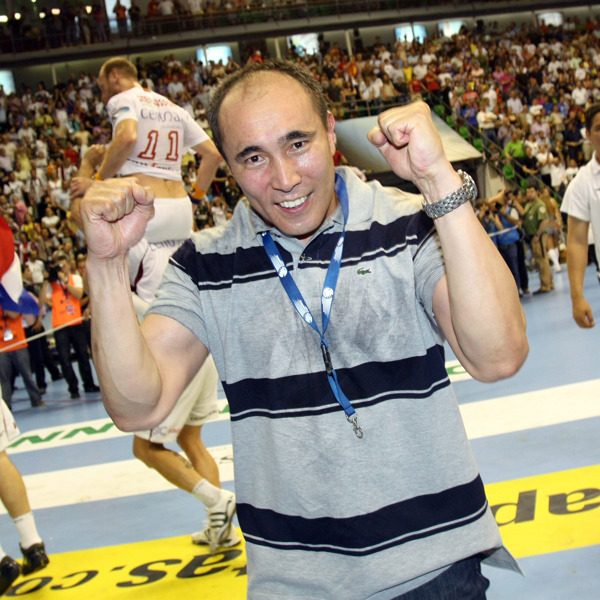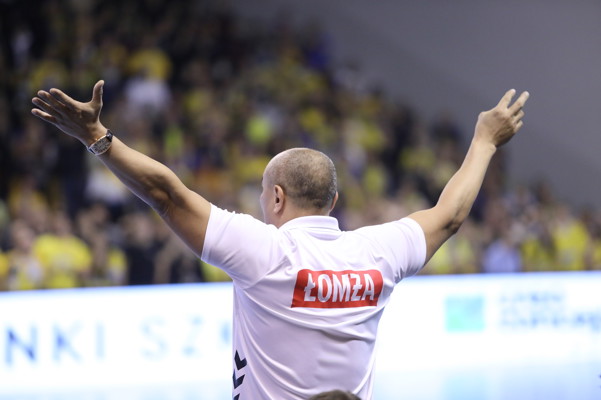This was exactly the project I was looking for. Sometimes in life, you simply have to say yes. Maybe not all decisions in my life were perfect, but this was the best one. It was a true adventure, like later Kielce became a true adventure for me.
We started the project almost from scratch, and I told Domingo I would play until 2004. In the end, I had my last match as a player in 2007, but I became playing coach in 2005. And already then, BM Ciudad Real was like a family for me.
In those years, I had the honour to coach some of the best handball players, like Arpad Sterbik, José Hombrados, Didier Dinart, Olafur Stefansson, Siarhei Rutenka, Uros Zorman, and later Ivano Balic. For me as a coach, it was my paradise, working only with superstars.

In 2006, we won the Champions League for the first time. For me, it was completely different to 1994, when I won the trophy as a player. We won the trophy again twice, we were ahead of FC Barcelona in the Spanish league, we won the Super Globe, and I am so proud that I was part of this project.
But it was obvious when the financial crisis hit Spain that hard times would come, even our change to Atletico Madrid could not save the club. All players and I fought until the last second, but we shared the same fate with clubs like Santander, Portland San Antonio, or Bidasoa Irun.
And I again had to decide what to do. I needed time to think, but I was absolutely sure that another project would come. And I was right: Bertus Servaas contacted me to join Kielce. Only half a year after the end of Atletico Madrid, I went to Poland.
And right now, I can say: I love Kielce, the handball-crazy city, the club, the team, the staff. Even when we had financial problems some years ago, it was clear to me that I never would leave this club. We managed to stand those challenges, we have won the Champions League already, and it is my dream to win this Champions League trophy again with Kielce.
As a coach in international sports, you can never have long-term plans as everything is connected to success. But I could definitely imagine staying at Kielce until I am 65, when I plan to retire. This is only 12 more years.
Kielce is that special to me, as my boys are here – and family is the most important thing for me. I have never put any pressure on Alex or Dani to become handball players. Even today, being their coach, I feel more like a father and friend than their coach. I did not force Kielce to sign them, it was their performance level which was the reason to join the club.

Of course, I do everything for them, but not as their coach, but as their father. Both are highly ambitious; both still can learn a lot. If I can, I help them. To have them both in my team is brilliant. And my little grandson Hugo is the biggest gift Alex could give to his father. I love to be grandfather.
And to be honest, I still see many goals ahead, as I do not want to live in the past: not talking about what happened 10, 20 years ago, but about what can happen in the next three or five years.
One important experience for me was being national team coach in Poland and Hungary. I had always dreamt to coach a national team and to see how it feels when you do not have the players around you every day. Hungary was difficult for me, as I had not been coach in the Hungarian league. Poland became easier, as I was coach here and knew all the players.
In general, by looking back at this point, I can say that handball gave me so much. Though I received many individual awards, handball is still a team sport. I give the two trophies as IHF World Player of the Year for one more Olympic gold medal. And I would never dare to make a choice of the best player of all times. Ask those kids today, nobody knows Birtalan, Wunderlich, Lavrov, Vujovic, Yoon or Wislander, maybe not even Jicha or Balic. But like Karabatic, they all put their stamp on an era. In basketball, you cannot compare Michael Jordan with Kobe Bryant or LeBron James. Was Pelé better than Maradona or Messi?
For me, it is more important to look ahead – as this is my mentality. As this is me, Talant Dujshebaev.
Talant Dujshebaev
February 2022







